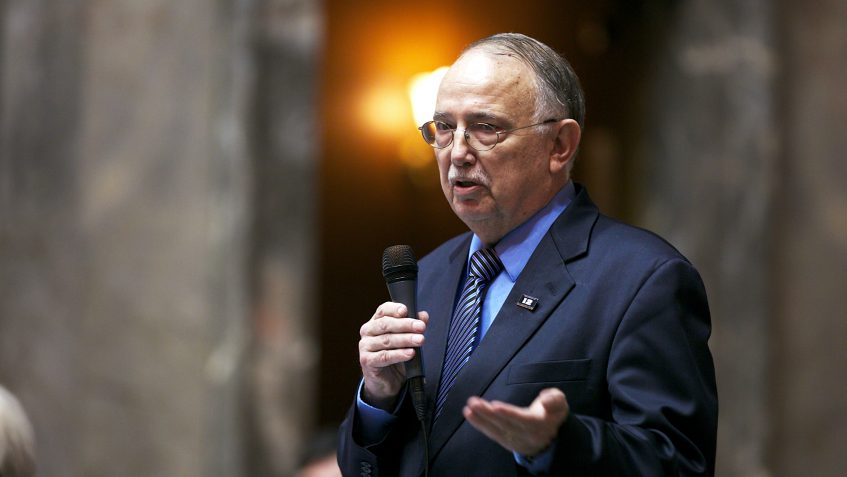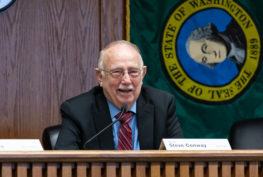Last week the Washington State Senate passed Senate Bill 5127 to remove age restrictions from structured settlement agreements. In June of 2013, Sen. Conway wrote an op-ed that appeared in the Tacoma News Tribune which outlined the problems and failures of SB 5127. The op-ed was republished on the website “The Stand” and can be accessed by following this link: http://www.thestand.org/2013/06/gops-workers-comp-reform-bad-for-injured-workers-state/
GOP’s workers’ comp ‘reform’ bad for injured workers, state
Members of the Senate Republican-Majority Caucus want to alter the state’s worker compensation program through Senate Bill 5127. Their changes would do little to help the worker or the taxpayer.
Currently, Washington allows settlements only for workers in their 50s and is somewhat unclear as to the breadth of the role that the Board of Industrial Insurance Appeals plays in reviewing these settlements to ensure workers are being treated fairly.
Under this bill, voluntary structured settlements — cash settlements for future income support — could be offered to injured workers as young as 40 years old.
Furthermore, it would prevent the Board of Industrial Insurance Appeals from reviewing settlements in which the workers are represented by lawyers to ensure they are settled in the workers’ “best interest.”
These structured agreements, voluntary or otherwise, would put taxpayers at risk for the cost of long-term income support for these workers in the form of state and federal programs — such as food stamps and federal disability payments. Settlements to young workers transfer the risk for income assistance from employers to taxpayers, shifting what historically has been the responsibility of the employer to those who pay state and federal taxes.
A century ago, injured workers gave up the right to sue employers over personal injuries at worksites in exchange for “sure and certain relief.” This has always included income support, up to and including pensions. SB 5127 would let employers substitute lump-sum settlements for long-term income support and — most important — pensions. This has been tried before, and it failed miserably.
During the 1990s, the U.S. Department of Labor paid out lump-sum settlements to workers only to see these injured men and women exhaust those funds and transition to taxpayer-funded entitlements like Temporary Assistance for Needy Families, food stamps, Medicaid (for family health benefits) and Social Security disability. In 1995, the Department of Labor admitted the folly of this and stopped granting lump-sum settlements. We would be crazy to go down the same failed path.
Supporters claim that the savings from SB 5127 would stabilize worker compensation rates for employers and restore stability to reserves used to meet these obligations.
Since this bill was introduced, the reserves of this fund have continued to grow. In its most recent report, the contingency reserve has grown to more than $953 million (at the beginning of the session, it stood at $750 million). This reserve is invested in our stock markets and managed well by the State Investment Board. Reserves have always fluctuated and at times allowed rebates to employers when investment returns have boomed, as it has for most insurers’ reserves.
There is no evidence that the structured settlements have played a role in this improvement.
The real weakness of structured settlements is that they are not a reliable solution to workers in their 40s and 50s, when they consider the challenge of retirement. A defined benefit is much more meaningful than a cash payout. This is why the structured agreement reform of 2011 has not delivered significant savings.
Instead, we should expand and accelerate reforms that will address the problem of long-term disability, which drives 90 percent of our cost. We should support successful programs like our return-to-work strategies and vocational rehabilitation reform rather than go down a path that is proven to fail.
Structured agreements do little to fix the problem of our long-term disability claims. They simply relieve employers of future liability and reflect an ongoing effort by corporate America to shift their employee liability costs to taxpayers.
Our workers compensation program was created to provide assurance to injured employees. The only assurance provided by SB 5127 is that these settlements will leave our middle-class families walking a high wire without a net. And when they fall, both they and the taxpayers will pay a steep price.




